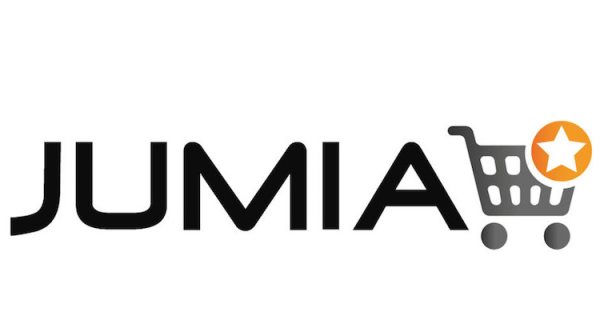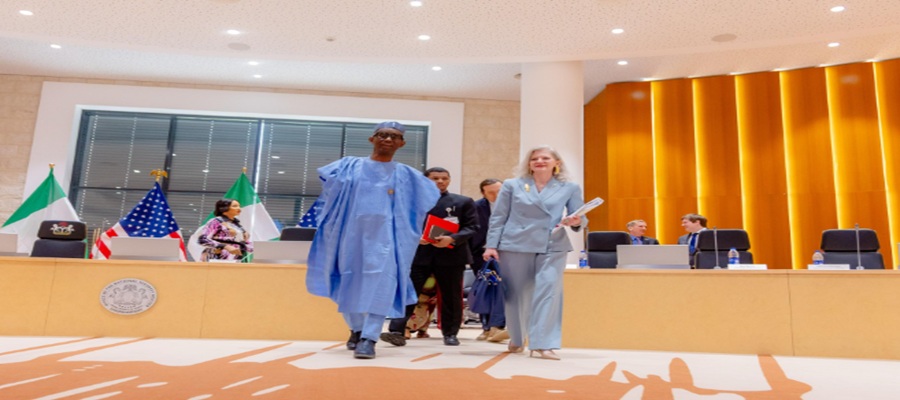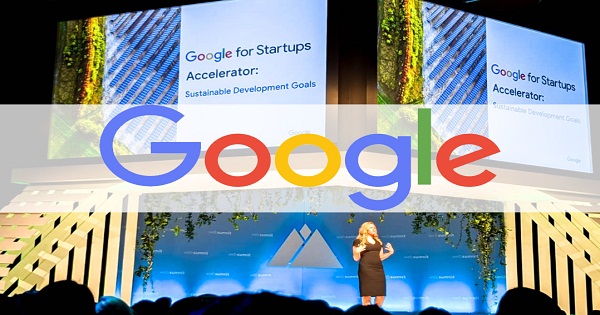General News
How Customers can Benefit from Jumia Tech Week

For electronics and gadgets lovers, Jumia Tech Week has over the years been a window of opportunity to shop for choice products at the best prices, and the 2022 edition will not be an exception.

During the two-week-long sales scheduled for March 21st – April 3rd, Jumia will be providing consumers with the opportunity to get the best deals on the latest tech items such as TV sets, cameras, mobile phones, computers, video games and more.
Below are ten things consumers can look out for during the campaign:
Quality Tech Products: Jumia Tech Week is a sales campaign in partnership with renowned global brands which ensures consumers of quality products at the best prices.
Brand Days: As usual, this year’s Jumia Tech Week will feature brand days where consumers get the opportunity to get the latest tech devices from their favourite brands at further discounts. Consumers have to pay attention to the days that feature the brands they love.
Treasure Hunt: During the period, Jumia consumers will also have opportunities to participate in a search game for a hidden item, in a particular category, at a specific time. Consumers search for the items, and the first to order wins. For instance, a customer can get an iPhone 13 for N5,940 and HP 15 Laptop for N1,999 on March 21st at 12 pm only on the Jumia App.
Flash Sales: Also on the list is the Jumia Flash Sales which allows consumers to get their favourite products at a highly discounted price. Flash sales go live at different times daily during the Tech Week Sale, so you need to set an alarm to enjoy it.
Selection of Products from Global Brands: Partnering with global gadget and electronic manufacturers such as Samsung, HP, Oraimo, TCL, Umidigi, Fitbit, Edifier, Anker and Xiaomi, Jumia will be giving consumers a wide selection of products to choose from during Tech Week.
Daily Check-In: As is the case in previous editions, Jumia said loads of gifts are also up for grabs during Tech Week. Consumers get to win a big surprise on the 7th day when they check-in for seven consecutive days.
Jumia Social Media Photo Contest: Jumia consumers have the chance to win exciting prizes by participating in the photo contest on social media. All you need to do is creatively arrange tech items, take a picture and share on your social media pages. Winners will be chosen from the most creative photo.
Jumia Word Game (Jumdle): Jumia is introducing a word game called Jumdle to increase engagement with consumers while allowing them to win amazing prizes. Consumers have to guess the Jumia words correctly in six attempts to win.
Free Delivery: Consumers also stand the chance of enjoying free delivery on tech products purchased during the Tech Week sale. However, this free delivery offer is available to consumers in Lagos and Abuja who have an order value above N4,999. In addition, the items must have a free delivery sticker to be eligible.
Free Returns: Finally, consumers can return any item purchased that doesn’t meet their requirements for free. All they need to do is log in to their Jumia account and go to the order page. Next, click on the item they wish to return, click on ‘Request a Return’ and follow the process.
General News
Nigeria Treats Religious Violence as Attack on State – NSA Ribadu

National Security Adviser Nuhu Ribadu has said the federal government considers religious violence an attack on the Nigerian state, stressing that the protection of all citizens, regardless of faith, is non-negotiable.

According to presidential spokesperson Bayo Onanuga, Ribadu made the remarks in Abuja at the close of a US–Nigeria Joint Working Group session.
“Nigeria is a deeply plural society, and the protection of all citizens, Christians, Muslims, and those of other beliefs, is non-negotiable,” Ribadu said.
“Violence framed along religious lines is treated as an attack on the Nigerian state itself.”
In a follow-up post on X, Ribadu said the joint working group has recorded “tangible operational gains” in the fight against terrorism.
The working group was set up following Nigeria’s designation as a Country of Particular Concern (CPC) by US President Donald Trump, a label that often triggers policy actions aimed at ending severe violations of religious freedom.
At the meeting, Ribadu led Nigeria’s delegation, which included representatives from 10 ministries and agencies, while the US delegation, made up of eight federal agencies, was led by Allison Hooker, US under-secretary of state.
Ribadu said Nigeria-US security cooperation has moved from dialogue to action, resulting in the disruption of terrorist networks and transnational criminal groups. He also praised the US for supplying drones, helicopters, platforms, spare parts, and other support systems over the past five years.
Speaking at the session, Hooker said the US was committed to expanding its partnership with Nigeria, particularly on deterring violence against Christian communities.
“Today, we are here to discuss how we can work together to deter violence against Christian communities, prioritising counter-terrorism, insecurity, investigation of attacks, and holding perpetrators accountable,” she said.
She added that efforts would focus on reducing killings, forced displacement, and abductions of Christians, especially in Nigeria’s north-central states
General News
PalmPay User Shares Experience on Fintech Apps to Trust in Nigeria

For many Nigerians, fintech apps are judged by one simple question: Can I trust the platform? For Happiness, a young Nigerian entrepreneur, the answer manifested in the most defining moments of her life.

Trust Built Through Everyday Use
In 2025, Happiness relied on PalmPay to run her business, from receiving customer payments, paying vendors, and managing daily transactions. During PalmPay’s Hustle Grant Campaign, she joined thousands of small business owners hoping to win the N500,000 funding.
While she didn’t make the shortlist, the campaign gave her business something just as valuable: visibility. New customers discovered her brand, enquiries increased, and sales followed.
PalmPay didn’t just host a campaign; it created an ecosystem where small businesses could be seen and supported.
Just days later, Happiness’ life changed. On August 30, 2025, she lost her father. With this loss came challenges, especially payments. They tried transferring money through regular banks but were met with declined transactions. Happiness suggested using her PalmPay account and it was successful.
In a moment defined by loss and urgency, PalmPay cut through the chaos, proving that reliability isn’t a feature, it’s a lifeline. Happiness’ relationship with PalmPay didn’t stop at transactions. Through other management tools on the app, she learned to build discipline around her finances.
More Than an App, a Financial Partner
Beyond transactions, PalmPay’s tools helped Happiness build better money habits and financial discipline. Today, the brand continues to reward reliability through initiatives like its ongoing Premier Cool campaign, reinforcing a simple message: consistency should come with value.
The idea is simple: Purchase a bar of soap and stand a chance to get ₦10,000cash and other cash benefits.
It’s PalmPay’s way of saying that smart money habits deserve real value in return.
Why PalmPay Earns Trust
Life doesn’t give warnings before it tests you. When it does, you need a platform that doesn’t just usually work but always works.
For many users, PalmPay proves to be more than a payment app. It is a trusted partner powering ambitions, supporting users through defining life moments, while helping them bank smartly.
When it mattered most, PalmPay worked. To watch the full testimonial visit: @palmpayapp_ng
General News
Nigerians Target Self-Improvement, Business Startups in 2026 Google Data

Google Search data from the first two weeks of 2026 reveals Nigerians are prioritising ambition, self-growth, and entrepreneurial ventures as they embrace the new year with renewed drive for personal and professional excellence.

The data shows a 40 per cent spike in searches related to self-improvement and “becoming better”, reflecting a nationwide shift from mere resolutions to actionable plans across boardrooms, classrooms, and homes. Entrepreneurship leads the charge, with “how to start a business” topping “how to start” queries after an 80 per cent surge, alongside rising interest in blogging, podcasting, and YouTube channels to foster economic opportunities.
Personal development dominates, as searches for “how to be a better person” rose 20 per cent, extending to relationships with queries on becoming better lovers, partners, husbands, wives, and listeners. Health resolutions gain traction, with 40 per cent increases in “how to eat healthy”, “healthy diet”, and “how to meditate” underscoring commitments to physical vitality and mental wellness.
Skill mastery captivates diverse audiences, from “how to improve English” and communication skills to enhancing memory, credit scores, and even handwriting, while leisure pursuits spike in “how to get better at” chess, singing, running, Fortnite, and soccer. Top searches include “how to improve communication skills”, “how to be a better listener”, and entrepreneurial starters like “how to start a podcast”, painting a portrait of a nation honing edges for success.
Taiwo Kola-Ogunlade, Communications and Public Affairs Manager for West Africa at Google, described the trends as a “powerful reflection of Nigeria’s collective ambition”, affirming the company’s dedication to tools like Search and Gemini for guiding Nigerians toward prosperity

 E-Financial3 days ago
E-Financial3 days agoZenith Bank Gets Regulatory Approval for Full Takeover of Paramount Bank

 Telecom3 days ago
Telecom3 days agoNew Investment Fund Targets Acceleration of Emerging Technology in Nigeria

 E-Business3 days ago
E-Business3 days agoFirm Detected a Fivefold Surge in QR Code Phishing Attacks in the Second Half of 2025

 News3 days ago
News3 days agoNITDA Commits to Digital Inclusion for Persons with Disabilities

 General News2 days ago
General News2 days agoPalmPay User Shares Experience on Fintech Apps to Trust in Nigeria

 News2 days ago
News2 days agoStakeholders Demand Stronger Governance and Infrastructure to Drive Tech Adoption @ Lagos AI Summit

 General News2 days ago
General News2 days agoNigerians Target Self-Improvement, Business Startups in 2026 Google Data

 General News2 days ago
General News2 days agoHow Inside Jobs and Policy Shocks Trigger Nigeria’s Rising Loan Crisis
























